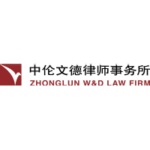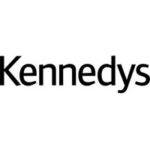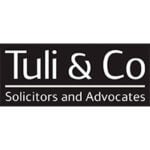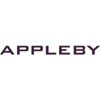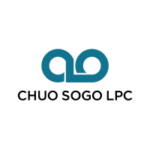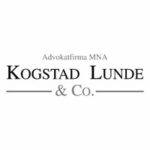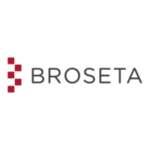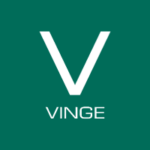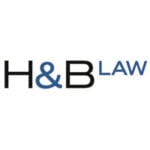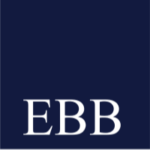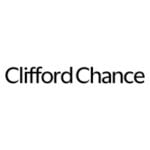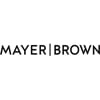-
How is the writing of insurance contracts regulated in your jurisdiction?
In Morocco, the drafting of insurance contracts is mainly governed by Law No. 17-99 (the “Insurance Code”) and its successive amendments, as well as Ministerial Order No. 2240-04 on insurance contracts.
The insurance policy must be written in legible characters (Article 11 of the Insurance Code), and clauses relating to nullity, forfeiture, and contract duration must be in very prominent characters (Article 14 of the Insurance Code) (“les clauses des contrats édictant des nullités prévues par le présent livre, des déchéances, des exclusions ou des cas de non assurance ne sont valables que si elles sont mentionnées en caractères très apparents”).
The insurance agreement, which sets out the general and specific terms and conditions, is dated on the day it is signed. It specifies in particular (Article 12 of the Insurance Code):
- the names and addresses of the contracting parties;
- the goods and persons insured;
- the nature of the risks covered;
- the moment from which the risk is covered and the duration of this cover;
- the amount of cover granted by the insurer;
- the insurance premium or contribution;
- the tacit renewal clause, if any;
- the cases and conditions for extension or termination of the agreement or termination of its effects;
- the obligations of the insured upon subscription with regard to the declaration of the risk and other insurance policies covering the same risk;
- the terms and conditions of the declaration to be made in the event of a claim;
- the time limits within which the indemnity, capital or annuity is paid;
- the procedure and rules relating to the assessment of damages for the purpose of determining the indemnity for insurance other than liability insurance.
The contract is not a formal requirement, but written evidence is essential.
Finally, any insurance agreement that an insurance or reinsurance company intends to issue for the first time must, prior to its issuance, be validated, in accordance with the procedures established by the Insurance and Social Welfare Supervisory Authority (Autorité de Contrôle des Assurances et de la Prévoyance Sociale, the “Authority” or “ACAPS”), by the company’s legal representatives or persons delegated by them for this purpose (Article 247 of the Insurance Code).
-
Are types of insurers regulated differently (i.e. life companies, reinsurers?)
Yes, different types of insurers are subject to distinct regimes. Order No. 2005-1548 identifies 29 categories of insurance operations, grouped into:
- Life and capitalization (categories 1 to 6)
- Non-life insurance (categories 7 to 28)
- Reinsurance (category 29)
Each category is subject to specific requirements regarding licensing, technical documentation, pricing, and mathematical provisions according to the type of business.
-
Are insurance brokers and other types of market intermediary subject to regulation?
Insurance intermediaries are strictly regulated by the Insurance Code. Defined as “any person licensed by the Authority as an insurance agent, individual or legal entity, or as an insurance brokerage company” (“Est intermédiaire d’assurances toute personne agréée par l’Autorité, en qualité d’agent d’assurances, personne physique ou morale, ou en qualité de société de courtage”) (Article 291 of the Insurance Code), they must obtain ACAPS’ approval (Article 289 of the Insurance Code).
-
Is authorisation or a licence required and if so how long does it take on average to obtain such permission? What are the key criteria for authorisation?
Insurance and reinsurance companies may only begin operations if they have been approved by the Authority. The decision granting approval to an insurance or reinsurance company shall be published in the “Official Gazette.”
Notwithstanding any provisions to the contrary, they are subject to the rules laid down in the Insurance Code with regard to their operating conditions, management, financial guarantees they must provide, accounting, supervision, and liquidation.
Specific information including the key criteria are mentioned by the ACAPS here:
It takes on average a couple of months up to one year to obtain a broker’s license and from 1 year to three years to obtain an insurance/reinsurance license.
-
Are there restrictions or controls over who owns or controls insurers (including restrictions on foreign ownership)?
Yes, any change in majority ownership, any transfer of more than ten percent (10%) of the shares and any direct or indirect acquisition of more than thirty percent (30%) of the share capital must be approved in advance by the Authority. The Authority must respond within thirty (30) days of receiving the request submitted for this purpose.
The Authority may prohibit acquisitions of shares or takeovers of insurance and reinsurance companies where such transactions are considered contrary to the general interest (Article 172 of the Insurance Code).
-
Is it possible to insure or reinsure risks in your jurisdiction without a licence or authorisation? (i.e. on a non-admitted basis)?
No, it is not possible to conduct insurance or reinsurance activities without a license in Morocco. Article 289 of the Insurance Code expressly states that “The direct presentation of insurance operations is subject to the prior approval of the Authority.”
This requirement applies to all sector entities, including insurance and reinsurance companies, intermediaries, and financial institutions wishing to distribute certain insurance products. Licensing is a prerequisite for legal operation in Morocco.
-
Is a branch of an overseas insurer, insurance broker and/or other types of market intermediary in your jurisdiction subject to a similar regulatory framework as a locally incorporated entity?
Yes, a branch of an overseas insurer, insurance broker, and/or other types of market intermediary is subject to a similar regulatory framework as a locally incorporated entity.
-
Are there any restrictions/substance limitations on branches established by overseas insurers?
Yes, there are restrictions/limitations on branches establishes by overseas insurers.
Insurance and reinsurance companies may only begin operations if they have been approved by the Authority. The decision granting approval to an insurance or reinsurance company shall be published in the “Official Gazette” (Article 161 of the Insurance Code).
The approval provided for above shall be granted, upon request, only to companies governed, subject to the commitments entered into under international agreements duly ratified by the Kingdom of Morocco and published in the “Official Gazette,” by Moroccan law, having their registered office in Morocco and after consultation with the regulatory commission (Article 165 of the Insurance Code).
As for other intermediaries: The approval of an insurance intermediary shall be granted by the Authority. This approval shall be subject to the following conditions (Article 304 of the Insurance Code):
For natural persons:
- be of Moroccan nationality;
- hold a license issued by a national university or a diploma recognized as equivalent by the administration;
- have completed a training course or have two (2) years of continuous professional experience in the insurance field;
- have passed the professional examination.
For legal entities:
- be governed by Moroccan law and have their registered office in Morocco;
- have at least fifty percent (50%) of their capital held by natural persons of Moroccan nationality or legal entities governed by Moroccan law, subject to free trade agreements entered into by Morocco with other countries, duly ratified and published in the “Official Gazette”.
-
What penalty is available for those who operate in your jurisdiction without appropriate permission?
Any person who commits any of the following acts shall be liable to imprisonment for a term of three (3) months to two (2) years and a fine of two thousand five hundred (2,500) to ten thousand (10,000) dirhams, or to one of these two penalties alone (Article 327 of the Insurance Code):
- […]
- exercises the profession of insurance intermediary without being authorized.
Where an individual or an entity operates in Morocco without appropriate permission, it will be considered by the Courts as an insurance intermediary and hence be subject the sanctions laid down by article 327 aforementioned of the Insurance Code.
-
How rigorous is the supervisory and enforcement environment? What are the key areas of its focus?
The supervisory and enforcement environment in Morocco is particularly rigorous, with ACAPS as the central regulator as created by dahir n° 1-14-1 dated March 6th, 2014, promulgating law n° 64-12.
ACAPS is responsible for several tasks, all of which contribute to the achievement of priority objectives, namely the protection of insured persons and the development of the insurance market amongst which:
- prudential supervision of insurance and reinsurance companies;
- organization of the insurance market;
- protection of insured persons;
- standardization and regulation of the sector;
- fighting against money laundering and terrorist financing;
- strengthening financial stability and macroprudential supervision;
In 2023, ACAPS issued 284 decisions regarding intermediaries and 430 on direct management offices, demonstrating intense regulatory activity.
Key supervisory areas include:
- risk-based solvency of insurers;
- corporate governance;
- control of mergers and acquisitions;
- regulation of insurance distribution;
- supervision of foreign reinsurance;
- digitalization of insurance activities…
ACAPS is also modernizing its processes with two digitization projects to enhance market supervision.
-
How is the solvency of insurers (and reinsurers where relevant) supervised?
The solvency of insurers and reinsurers in Morocco is supervised by the ACAPS, following a robust prudential framework aligned with international standards and inspired by the European Solvency II model.
Morocco has adopted a risk-based solvency regime, which strengthens solvency standards and aligns with best international practices. This regime is structured around three pillars:
- Quantitative pillar:defines capital, equity, and solvency ratios that insurers must meet, ensuring they have sufficient financial resources to cover their commitments to policyholders at all times.
- Qualitative pillar:focuses on governance and risk management requirements, including internal controls and effective risk assessment processes.
- Disclosure pillar:organizes the information insurers must provide to supervisory authorities and the public, enhancing transparency and market discipline.
ACAPS conducts its supervision through:
- Documentary monitoring:insurers are required to submit regular reports and documents as prescribed by insurance regulations or upon request by the ACAPS.
- On-Site inspections:sworn ACAPS agents may conduct on-site inspections at any time, with full access to all necessary information to assess solvency and risk exposures.
The Authority may withdraw all or part of the authorization of an insurance or reinsurance company where:
- it is in the public interest;
- the company is not operating in accordance with the legislation and regulations in force;
- the company refuses to underwrite motor vehicle insurance as provided for in Article 128 of the Insurance Code;
- the company does not meet the financial guarantees.
Where total withdrawal of authorization takes place, the Authority shall appoint a liquidator, who may be a natural or legal person.
The liquidator shall report to the Authority on the performance of his mandate. The Authority may, at any time, request information and justification from the liquidator regarding his operations and carry out on-site checks (Article 269).
-
What are the minimum capital requirements?
Insurance and reinsurance companies must have a share capital of at least fifty million (50,000,000) dirhams (Article 171 of the Insurance Code).
-
Is there a policyholder protection scheme in your jurisdiction?
Morocco does not have a dedicated, general policyholder protection fund (such as a guarantee fund found in some other jurisdictions) that compensates policyholders in the event of an insurer’s insolvency. However, the country has developed a robust regulatory and supervisory framework aimed at protecting policyholders through five main mechanisms.
- First, the ACAPS is the independent public authority responsible for supervising insurance and reinsurance companies, as well as intermediaries.
- Second, the Morocco’s Insurance Code as well as law n° 31-08 on Consumer Protection (the “Consumer Protection Law”) impose strict obligations on insurers, including:
- providing clear pre-contractual information to consumers;
- ACAPS validation of insurance products before they are marketed;
- ensuring contracts are fair, transparent, and understandable;
- requiring prompt and fair claims handling;
- Third, policyholders who believe their rights have been infringed can file complaints directly with ACAPS, which has established procedures for rapid, transparent, and effective resolution of disputes between insurers and insureds.
- Fourth, for natural disasters and catastrophic events, Morocco has implemented a dual public-private protection scheme:
- Compulsory catastrophe insurance extension: property insurance policies must include coverage for certain catastrophe risks (earthquake, flood, tsunami, etc.).
- Solidarity Fund (FSEC): Established by law n° 110-14, this public fund compensates uninsured households affected by disasters, supplementing market-based insurance coverage.
- Fifth and finally, Article 263 of the Insurance Code provides that where it is found, upon examination of the accounting and financial documents that a company must provide, that the imbalance in the company’s situation results from one or more of the categories of compulsory insurance operations it carries out, the company may, after approval of its recovery plan by the Authority, obtain assistance from the insurance solidarity fund created by Article 39 of the Dahir promulgating Law n° 1-84-7 of 6 Rabii II 1404 (January 10, 1984), (the “Insurance Solidarity Fund”) to offset all or part of this imbalance.
Furthermore, according to Article 264 of the Insurance Code, in the context of an automatic transfer of some assets to another approved company, subsidy may be granted. This subsidy is intended to cover all or part of the transferor company’s asset shortfall, taking into account its actual commitments. It is charged to the aforementioned Insurance Solidarity Fund.
Article 269 of the Insurance Code also states that where total withdrawal of approval occurs, the Authority shall appoint a liquidator, who may be a natural or legal person. In this case, a subsidy, charged to the aforementioned Insurance Solidarity Fund, may be granted to the said company to cover all or part of the shortfall in assets relating to the categories of compulsory insurance.
The amounts of aid or subsidies from the Insurance Solidarity Fund, to be granted in accordance with the provisions of Articles 263, 264, and 269 above, shall be granted by the Minister responsible for finance on the proposal of the Authority.
-
How are groups supervised if at all?
The prudential supervision of insurance and reinsurance companies carried out by ACAPS takes the form of control and inspection missions. By monitoring the solvency of operators, the Authority ensures that their financial situation enables them to meet their commitments to policyholders at all times.
This supervision aims to thoroughly analyze the activities, risk exposures, and capacities of the entities subject to supervision to honor their commitments.
It may also be preventive in nature, as it allows the risks incurred by a company to be detected and appropriate solutions to be implemented.
Based on international standards, this supervision is carried out:
- On the basis of documents required by insurance regulations or requested by the Authority, insofar as they are necessary for the control mission;
- On site, by sworn agents of the Authority. The latter may, at any time, verify the insurance operations carried out by the entities subject to supervision. They have access to all information necessary for their control missions.
Criminal, financial, or disciplinary penalties may be imposed on insurance and reinsurance companies or their managers, depending on the seriousness of the breach of a provision of the regulations in force.
-
Do senior managers have to meet fit and proper requirements and/or be approved?
Yes, managers of insurance companies and intermediaries must meet integrity and competence requirements.
As for insurance and reinsurance companies, the license application must include (amongst others):
- The list of members of the board of directors or supervisory board, the executive board, the managing directors and directors, including their first names, surnames, addresses, nationalities, dates and places of birth, and a description of each of these persons. This description must indicate:
- The nature of their current professional activities and those they carried out prior to the application for authorization;
- Whether they have been subject to disciplinary sanctions by a supervisory authority or a competent professional organization, or to refusal of registration on a professional list;
- Whether they have been dismissed or subject to an equivalent measure for misconduct;
- Whether they have held administrative or management positions in companies that have been subject to receivership or liquidation proceedings.
In addition, the following must be provided for persons responsible for the management of the company by the board of directors or supervisory board:
- The powers conferred on them by the relevant board;
- an extract from their criminal record dated within the last three months;
- a sworn statement certifying that they have not been convicted of any of the offences referred to in Article 227 of Insurance Code.
- The list of members of the board of directors or supervisory board, the executive board, the managing directors and directors, including their first names, surnames, addresses, nationalities, dates and places of birth, and a description of each of these persons. This description must indicate:
-
To what extent might senior managers be held personally liable for regulatory breaches in your jurisdiction?
Article 352 of law n° 17-95 relating to sociétés anonymes indicates that “the directors, the chief executive officer and, where applicable, the deputy chief executive officer or the members of the management board shall be liable, individually or jointly, as the case may be, to the company or to third parties, for any infringements of the laws or regulations applicable to public limited companies, for any violations of the articles of association, or for any misconduct in their management.”
-
Are there minimum presence requirements in order to undertake insurance activities in your jurisdiction (and obtain and maintain relevant licenses and authorisations)?
Yes, there are minimum presence requirements in order to undertake insurance activities in Morocco.
Article 165 of the Insurance Code provides that the approval to exercise insurance operations shall be granted, upon request, only to companies governed, subject to the commitments entered into under international agreements duly ratified by the Kingdom of Morocco and published in the “Official Gazette,” by Moroccan law, having their registered office in Morocco and after consultation with the regulatory commission.
-
Are there restrictions on outsourcing services, third party risk management and/or operational resilience requirements relating to the business?
Yes, specifically regarding the presentation of insurance operations (i) and cybersecurity (ii).
i. Presentation of insurance
Instruction P.IN.02/2023 (the “Instruction”) sets out the terms and conditions for outsourcing activities ancillary to the presentation of insurance operations.
The Instruction defines the presentation of insurance operations as “the act of a natural or legal person soliciting or obtaining the subscription of an insurance, reinsurance and/or capitalization agreement or presenting the terms and conditions of such an agreement to a potential subscriber, either orally or in writing.”
Only the following activities1 supporting the presentation of insurance operations may be outsourced2 to subsidiary premises3 :
- archiving;
- IT;
- accounting;
- claims management.
Insurance intermediaries may outsource subsidiary activities to premises other than those used for the presentation of insurance operations.
The Authority must be notified of the opening of any subsidiary premises via the Inter Web platform4 10 days before the effective start date.
The subsidiary premises must not display any signs, posters, indications or documents suggesting that insurance operations are being presented.
ii. Cybersecurity
In addition to the Instruction, Article 12 of law n° 05-20 on cybersecurity provides that any outsourcing of a sensitive information system must be covered by an agreement governed by Moroccan law, which must include commitments regarding information protection, auditability, and reversibility, as well as the required security requirements and service levels.
Article 25 also indicates that in the event of outsourcing of cybersecurity services, those responsible for critical infrastructure must use service providers qualified by the national authority.
Footnote(s):
1 A subsidiary activity is “any activity carried out by an insurance intermediary in support of the presentation of insurance transactions”.
2 Outsourcing refers to “the transfer of one or more subsidiary activities to premises other than those intended for the presentation of insurance transactions”.
3 The premises of the subsidiary activity are “the premises designated by the insurance intermediary to carry out subsidiary activities related to the presentation of insurance transactions.”
4 The “Web Inter” platform refers to the electronic exchange platform developed by the Authority for use by insurance intermediaries.
-
Are there restrictions on the types of assets which insurers or reinsurers can invest in or capital requirements which may influence the type of investments held?
Yes, there are significant restrictions and regulatory requirements on the types of assets in which insurers and reinsurers in Morocco can invest, and capital requirements play a direct role in shaping investment strategies.
Moroccan insurance law imposes strict diversification rules on insurers’ investment portfolios. There are explicit limits on the proportion of assets that can be invested in certain asset classes, particularly equities. For example, the proportion of equities in insurers’ portfolios is capped to prevent excessive exposure to market volatility. These rules are set out in the Insurance Code and further detailed in regulatory guidance.
Insurers are generally required to invest the majority of their assets domestically. Access to international markets is tightly restricted: insurers may invest up to only 5% of their total assets abroad, and only with prior authorization from ACAPS, as per Article 164 of the Insurance Code.
The regulatory framework emphasizes security and liquidity. Insurers are encouraged (and may soon be required) to invest a minimum proportion of their assets in highly secure and liquid instruments, such as government bonds and highly tradable assets. This is to ensure that insurers can meet their obligations to policyholders at all times.
Only certain types of assets are admissible to represent technical provisions. These include government securities, listed shares, bonds, real estate (within limits), and other regulated financial instruments. Investments in unlisted companies or high-risk assets are generally restricted or subject to strict quantitative limits.
Insurers must maintain minimum capital levels, which vary by type of insurance business (e.g., MAD 50 million for public limited companies and mutual insurers). These requirements are designed to ensure that insurers have enough financial strength to absorb losses and meet policyholder claims.
Morocco is transitioning toward a Solvency II-inspired, risk-based capital regime. Under this system, the capital required is linked to the risk profile of the insurer’s assets and liabilities. Riskier investments (such as equities or real estate) require insurers to hold more capital, thereby discouraging excessive risk-taking and incentivizing prudent asset allocation.
Insurers must establish and maintain sufficient technical provisions, fully represented by admissible assets, to cover all liabilities to policyholders and beneficiaries. The nature and quality of these assets are regulated to ensure that they are appropriate for covering insurance obligations.
ACAPS closely monitors insurers’ investment activities and compliance with asset and capital requirements through regular reporting, on-site inspections, and documentary reviews. The regulator may require corrective measures if an insurer’s investment practices are deemed to jeopardize solvency or policyholder protection.
-
Are there requirements or regulatory expectations regarding the management of an insurer's reinsurance risk, including any restrictions on the level / type of reinsurance utilised?
Foreign reinsurance is tightly controlled in Morocco. In 2015, it accounted for 10% of premiums, with higher rates in certain sectors: 71% for technical risks, 50% for fire, 33% for liability, and 31% for transport.
While international reinsurance is necessary for large risks, authorities encourage co-insurance to retain more premiums locally.
Companies cede part of their premiums mainly for prudential reasons related to their equity.
Article 164 of the Insurance Code further provides that an insurance and reinsurance company may make deposits and investments outside Morocco and invest in foreign securities up to a limit of five percent (5%) of its total assets, subject to prior approval by the Authority.
The aforementioned limit shall be calculated on the basis of the balance sheet drawn up by the company concerned for the previous financial year, without taking into account the amount of assets held by foreign cedants or deposited with them on behalf of the said company in technical provisions relating to acceptance operations.
However, deposits, investments and placements referred to in the first paragraph above representing commitments denominated in foreign currency or made abroad may be made, with the prior consent of the Authority, in excess of the aforementioned five percent (5%) limit.
-
How are sales of insurance supervised or controlled?
Insurance distribution in Morocco is strictly regulated by ACAPS.
In accordance with law n° 64-12 and Article 2 thereof:
“The ACAPS shall exercise control over persons governed by public or private law, with the exception of the State, who carry out or manage insurance or reinsurance operations, as well as the presentation of such operations governed by the provisions of Insurance Code.”
Following Article 159 of the Insurance Code, insurance operations are understood to mean all operations relating to the coverage of risks concerning a person, property, or liability.
Reinsurance operations are understood to mean all operations involving the acceptance of risks transferred by an insurance or reinsurance company.
The ACAPS issued 284 decisions on intermediaries in 2023. Controls include:
- Mandatory licensing for intermediaries (agents and brokers)
- Authorization for opening direct management offices (430 decisions in 2023)
- Specific authorizations for certain products (micro-insurance)
- Approval of insurance contracts
- Regulation of online sales via a specific instruction
Intermediaries must pass professional exams and meet strict qualification, training, and integrity requirements.
-
To what extent is it possible to actively market the sale of insurance into your jurisdiction on a cross border basis and are there specific or additional rules pertaining to distance selling or online sales of insurance?
Article 158 of the Insurance Code clearly states that any company that intends to carry out an operation classified as insurance or reinsurance or similar to an insurance operation shall be subject to the provisions of the Insurance Code and the texts adopted for its application. It does not make any difference between national or international companies, all insurance and reinsurance companies are subject to the same provisions when exercising insurance operations in Morocco.
As such, all insurance and reinsurance companies may only begin operations if they are approved by the ACAPS (Article 161).
All insurance and reinsurance companies shall be subject to the rules laid down in the Insurance Code with regard to their operating conditions, management, financial guarantees, accounting, supervision, and liquidation no matter their nationality, as long as they operate in Morocco.
Online sales of insurance are regulated by the ACAPS’ instruction P.IN.02/2022 regulating the conditions under which insurers and authorised distributors may use online platforms to sell insurance products in Morocco. The Instruction applies to all insurers and insurance distributors who wish to establish an online sales platform (“Dispositif”). It does not apply to platforms merely providing advertising or indicative quotes, provided appropriate disclaimers are included.
Only duly licensed insurers and distributors may operate online sales platforms. They must ensure full compliance with Moroccan insurance laws, consumer protection law, electronic transactions law, and anti-money laundering obligations.
The online platform must clearly display:
- The insurer’s or distributor’s legal identity, regulatory status, and contact details.
- Comprehensive pre-contractual information, including product features, exclusions, premiums, payment terms, duration, and withdrawal rights.
- Easy access to general terms and conditions and the ability for consumers to save and reproduce them.
Contracts may be concluded either:
- Through a reliable electronic signature system that ensures the integrity and identification of the parties, or
- Via a physical signature with specific rules on offer validity and contract return procedures.
Platforms must integrate client identification, verification, and vigilance processes, as prescribed under ACAPS’ Instruction n° AS/02/19 on anti-money laundering compliance for insurance operators.
Before launching an online sales platform, insurers or distributors must submit to ACAPS amongst others:
- a detailed presentation form;
- the general terms and conditions;
- security compliance questionnaires;
- description of subscription and signature processes (paper or electronic); and
- allow ACAPS to review and test the online process.
-
Are insurers in your jurisdiction subject to additional requirements or duties in respect of consumers? Are consumer policies subject to restrictions, including any pricing restrictions? If so briefly describe the range of protections offered to consumer policyholders
Insurers in Morocco are subject to a robust set of additional requirements and duties regarding consumer protection, governed primarily by the Insurance Code and the Consumer Protection Law. The regulatory authority, ACAPS, plays a central role in enforcing these obligations and ensuring fair treatment of policyholders.
The following requirements constitute the key consumer protection aspects:
- Pre-contractual information: insurers must provide consumers with clear, comprehensive information before the conclusion of any contract. This includes a draft contract or an information notice detailing guarantees, limitations, prices, and the insured’s obligations. This allows consumers to make informed decisions about the insurance products they purchase.
- Product approval and oversight: every insurance contract intended for the market must be validated by ACAPS before issuance. The Authority also reviews advertising and contractual documents to ensure compliance with legal and regulatory standards. Article 247 of the Insurance Code specifically mandates the control of insurance product conformity and holds insurers accountable for the internal validation of their products prior to market introduction.
- Fair treatment and claims handling: insurers are required to treat policyholders fairly, particularly in processing requests and claims, fulfilling contractual obligations, and designing products that meet the needs of various consumer groups. ACAPS monitors these practices to ensure insurers and intermediaries adhere to good conduct and fair treatment standards.
- Complaint resolution: policyholders have the right to file complaints with ACAPS if disputes with insurers arise. ACAPS provides a mechanism for prompt, transparent, and efficient handling of such complaints, reinforcing consumer rights in the sector.
- Transparency and simplicity: the regulator works in favor in simplification of insurance contracts and clear communication, aiming to make products understandable and accessible to consumers.
-
Is there a legal or regulatory resolution regime applicable to insurers in your jurisdiction?
Yes, Morocco has a legal and regulatory framework applicable to the resolution of insurers in financial distress. The regime is based on a combination of sector-specific insurance regulation (i), Insurance Solidarity Fund (ii) and the general insolvency framework for commercial companies (iii).
i. Insurance Code
The Insurance Code contains specific provisions for the intervention and resolution of insurance companies facing financial difficulties.
Notably, it establishes the authority of ACAPS to intervene in cases of financial imbalance, including approving recovery plans and, if necessary, triggering liquidation procedures. Articles 263, 264, and 269 of the Insurance Code outline these powers, including the possibility for ACAPS to approve or require recovery plans and to oversee the orderly exit or transfer of insurance portfolios.
ii. Insurance Solidarity Fund
The Insurance Solidarity Fund (“ISF”) is a compensation fund designed to provide financial assistance or subsidies to insurance companies in difficulty, especially when the financial imbalance results from compulsory insurance operations. The ISF may intervene after ACAPS has approved a recovery plan, or in the context of liquidation, to protect policyholders and maintain market stability.
iii. Commercial Code
General insolvency procedures for commercial companies, including insurers, are governed by Book V of the Moroccan Commercial Code (law n° 15-95). This framework provides for:
- prevention and amicable settlement procedures for companies not yet insolvent;
- judicial rehabilitation (continuation plans, transfers, or sales to rescue the business);
- judicial liquidation for irredeemably insolvent companies, leading to the sale of assets and the orderly winding down of operations.
These proceedings are overseen by the commercial courts, with the involvement of a judge-commissioner and a court-appointed trustee (syndic).
ACAPS is the sole authority responsible for the regulation, supervision, and, where necessary, the resolution of insurance companies. It has the power to require insurers to develop crisis management and recovery plans, especially for cross-border groups, and is actively involved in the ongoing revision of the Insurance Code to strengthen recovery and resolution planning.
-
Are the courts adept at handling complex commercial claims?
Moroccan courts are equipped with specialized commercial courts that handle complex commercial claims, reflecting a significant degree of specialization and procedural adaptation for business disputes. Law n° 53-95 established commercial courts.
There are ten first-instance commercial courts and five commercial courts of appeal across Morocco, each with dedicated chambers and judges experienced in commercial matters. These courts apply expedited procedures, shorter deadlines, and flexible rules of evidence-such as admitting oral testimony and merchant accounting books-to accommodate the fast-paced nature of commerce and the complexity of business transactions.
The commercial courts’ jurisdiction covers a wide range of business disputes, including those arising from commercial contracts, transactions between merchants, trade bills, shareholder disputes, and business assets, with competence determined by both subject matter and claim value. For uncontested claims, fast-track procedures such as payment orders are available, further enhancing efficiency.
-
Is alternative dispute resolution well established in your jurisdictions?
Alternative dispute resolution (“ADR”) is well established and increasingly prominent in Morocco, both in commercial and insurance sectors.
Morocco has modernized its ADR landscape with law n° 95-17 on arbitration and conventional mediation (the “Arbitration Law”). This law distinguishes between domestic and international arbitration, introduces comprehensive rules for both arbitration and mediation, and aims to position Morocco as a regional hub for ADR.
There are two types of ADR available:
- Arbitration: widely recognized for both domestic and cross-border disputes, arbitration in Morocco is governed by a modern legal framework. Arbitral awards are binding and enforceable, and parties can select arbitrators and procedures.
- Mediation: mediation is formally recognized and increasingly used, especially for commercial and civil disputes. It involves a neutral third party facilitating a negotiated settlement. The process is confidential and can result in a binding agreement.
In the insurance sector, the Moroccan Insurance Federation (FMA/FMSAR) and ACAPS have actively promoted ADR. A dedicated insurance mediator, jointly appointed by ACAPS and FMSAR, provides policyholders and third-party beneficiaries with a fast, free, and accessible alternative to court proceedings for resolving disputes with insurers.
The “Charte de la Médiation en Assurances” (2022) institutionalized mediation in insurance, aiming to reduce litigation and offer policyholders an efficient dispute resolution channel.
ADR is increasingly favored by businesses and individuals seeking to avoid lengthy and costly litigation. Mediation and arbitration are seen as effective ways to resolve disputes confidentially and efficiently.
-
Is there a statutory transfer mechanism available for sales or transfers of books of (re)insurance? If so briefly describe the process
Yes, Morocco has a statutory transfer mechanism for the sale or transfer of books of (re)insurance, governed by the Insurance Code and overseen by the ACAPS.
The transfer of insurance or reinsurance portfolios (books of business) is explicitly regulated by the Moroccan Insurance Code, as well as ACAPS regulations and circulars.
Transfers can occur via:
- a merger
- the transfer of a portfolio of contracts (books of business)
- a takeover
Any transfer of insurance or reinsurance portfolios requires the prior approval of ACAPS, the sector’s regulatory authority.
The transferring insurer must notify ACAPS in advance and submit a formal request for authorization, specifying the details of the transfer and providing supporting documentation (such as articles of association, registration, shareholder information, business plan, etc.).
ACAPS examines the technical and financial capacity of the transferee, the reputation and qualifications of management, the economic impact, and the effect on market stability and competition.
The transfer must be disclosed in advance to ACAPS, and policyholders are generally informed of the transfer. In practice, this may involve publication in an official gazette or direct notification to affected policyholders.Once ACAPS grants approval, the transfer is legally effective, and all rights and obligations under the transferred contracts move to the acquiring insurer or reinsurer.
In the event of liquidation or insolvency, the Insurance Solidarity Fund may intervene to cover asset shortfalls in compulsory insurance categories when portfolios are transferred to another licensed insurer.
-
What are the primary challenges to new market entrants? Are regulators supportive (or not) of new market entrants?
The main primary challenges to new market entrants & regulatory support in Morocco are:
- Dominance of large companies:The Moroccan insurance market is highly concentrated, with a few major companies maintaining dominant positions. This concentration limits competition and makes it difficult for new and smaller entrants to gain market share.
- Stringent legal and regulatory barriers:New entrants must comply with strict legal requirements, including:
- Minimum capital requirements: significant founding or social capital is required, which can be prohibitive for small and emerging companies.
- Approval process: all insurance and reinsurance companies must obtain prior approval from ACAPS before commencing operations.
- Professional qualifications: prospective brokers must pass a professional exam and hold a relevant diploma, which can be a barrier for market entry.
- Ongoing regulatory reforms: the sector is evolving, with ACAPS and the government working on regulatory reforms to encourage competition, diversify offerings (e.g., Takaful and micro-insurance), and facilitate digital transformation.
-
To what extent is the market being challenged by digital innovation?
Digital innovation is significantly reshaping Morocco’s insurance market, presenting both major opportunities and notable challenges for traditional players and new entrants alike.
The Moroccan insurance regulator, ACAPS, has made digital transformation a strategic priority. In 2025, ACAPS launched the “Emergence” program-a collaborative initiative designed to accelerate digital innovation across the sector. This program brings together insurers, technology experts, and international speakers to identify and prototype high-impact digital solutions, aiming to modernize business models and better meet evolving policyholder expectations. ACAPS’s Innovation & InsurTech Unit, established in 2023, acts as a catalyst for innovation by providing regulatory guidance, supporting InsurTech startups, and fostering a collaborative ecosystem for digital insurance solutions.
InsurTech is playing an increasingly pivotal role, with startups leveraging technologies such as AI, IoT, and big data to create new products, streamline processes, and reach underserved populations. These innovations are driving financial inclusion and making insurance more accessible and affordable, particularly for low-income and rural communities. Programs like “212Founders” and partnerships with CDG Invest further support the growth of InsurTechs through funding and business development resources.
Digitalization is transforming the entire insurance value chain-from online policy distribution and digital claims management to customer engagement and risk assessment. The COVID-19 pandemic accelerated this trend, pushing insurers to adopt more flexible, customer-centric, and technology-driven approaches. The use of digital platforms has improved efficiency and enabled the launch of more personalized and responsive insurance products.
-
How is the digitization of insurance sales and/or claims handling treated in your jurisdiction, for example is the regulator in support (are there concessions to rules being made) or are there additional requirements that need to be met?
The digitization of insurance sales and claims handling in Morocco is actively supported by both regulators and industry stakeholders, but it is subject to specific regulatory requirements and evolving legal frameworks.
The insurance regulator, ACAPS, has clearly positioned itself in favor of digital transformation. ACAPS issued Instruction n° P.IN 02/2022, which took effect on July 1, 2022, establishing a dedicated regulatory framework for the online sale of insurance products. This instruction clarifies compliance requirements and aims to facilitate the implementation of digital sales channels by insurance companies and intermediaries.
ACAPS has launched electronic platforms allowing policyholders to file complaints and track their cases online, improving the efficiency and transparency of claims management. Recent agreements between ACAPS, the Ministry of Justice, and the Moroccan Insurance Federation further support the digitization of exchanges between courts and insurers, aiming to streamline legal procedures and accelerate claims settlement.
-
To what extent is insurers' use of customer data subject to rules or regulation?
Insurers in Morocco’s jurisdiction are subject to comprehensive and strict regulations regarding their use of customer data, primarily governed by law n° 09-08 on the protection of individuals (the “Data Protection Law”) with regard to the processing of personal data, along with its implementing decrees.
All processing of personal data by insurers-including collection, storage, use, and transfer-must comply with the Data Protection Law. The law applies to any data relating to an identified or identifiable person, and its enforcement is overseen by the Commission Nationale de Contrôle de la Protection des Données à Caractère Personnel (“CNDP”), Morocco’s national data protection authority.
Insurers must file a prior declaration with the CNDP before processing personal data. If the processing involves sensitive data (such as health, ethnicity, political opinions, or national ID numbers), or if data will be transferred abroad, prior authorization from the CNDP is required.
As a general rule, insurers must obtain the explicit, informed, and specific consent of the data subject before processing their personal data, unless an exception applies (such as legal obligations or contract performance). The CNDP interprets exceptions to consent very restrictively.
Data must be collected for specific, explicit, and legitimate purposes, and must be adequate, relevant, and not excessive in relation to those purposes. Insurers are required to inform data subjects about the purpose of data collection and processing at the time of collection.
Individuals have the right to access their personal data, request rectification or erasure of inaccurate or unlawfully processed data, and object to certain processing activities. Insurers must facilitate the exercise of these rights and maintain transparency regarding data processing.
Insurers are required to implement all necessary technical and organizational measures to protect customer data against unauthorized access, alteration, loss, or any form of illicit processing. Subcontractors and third parties with access to data must also comply with these requirements.
Personal data must only be retained for as long as necessary to fulfill the purpose for which it was collected. Retention beyond this period requires express authorization from the CNDP.Any transfer of personal data outside Morocco requires prior authorization from the CNDP, and is only permitted if the destination country ensures an adequate level of protection, or with the data subject’s explicit consent.
Non-compliance with data protection obligations can result in significant penalties, including fines, imprisonment, and, for legal entities, additional sanctions such as closure of the establishment or confiscation of property.
-
To what extent are there additional restrictions or requirements on sharing customer data overseas/on a cross-border basis?
Insurers in Morocco are subject to strict and detailed restrictions regarding the cross-border transfer of customer data, primarily governed by the Data Protection Law.
Any transfer of personal data-including insurance customer data-from Morocco to a foreign country generally requires prior authorization from the CNDP. This applies to all data controllers, including insurers.
Data can only be transferred to a foreign state if that country provides an adequate level of protection for privacy and fundamental rights, as determined by the CNDP. The CNDP may publish a list of countries considered to offer such protection, but in practice, this list is limited or may not cover all jurisdictions.
Transfers to countries not recognized as providing adequate protection are only permitted under specific exceptions, such as:
- express consent of the data subject;
- necessity for the performance of a contract with the data subject or to take steps at their request before entering into a contract;
- protection of the data subject’s vital interests;
- compliance with a legal obligation;
- performance of a task of public interest or exercise of public authority;
- fulfillment of the legitimate interests of the data controller, provided these are not outweighed by the rights and freedoms of the data subject (this exception is interpreted very restrictively by the CNDP).
The insurer must document and notify the CNDP of the intended transfer, including details about the recipient, purpose, security measures, and contractual safeguards in place. Transfers based on the data subject’s consent or for contractual necessity must still be declared to the CNDP.
For transfers to countries lacking adequate protection, the CNDP may require additional contractual clauses (such as data transfer agreements) to ensure the data subject’s rights are protected.
-
To what extent are insurers subject to ESG regulation or oversight? Are there regulations/requirements, including in connection with managing climate change and climate change related financial risks specific to insurers? If so, briefly describe the range of measures imposed.
Insurers in Morocco are increasingly subject to environmental, social, and governance (ESG) regulation and oversight, with a growing focus on climate change and climate-related financial risks. While the ESG regulatory framework is more advanced and explicit for banks and capital market participants, the insurance sector is progressively being brought under similar expectations and guidelines.
Morocco’s financial sector, including insurance, is guided by the “Roadmap for Aligning the Moroccan Financial Sector with Sustainable Development,” which sets out cross-sectoral measures for integrating ESG factors into financial decision-making. This roadmap encourages all financial institutions, including insurers, to:
- Commit to sustainable funding and investment,
- Adopt policies for social and environmental responsibility,
- Promote a culture of environmental risk prevention among clients and stakeholders.
The Moroccan Capital Market Authority (AMMC) has made ESG reporting mandatory for all listed issuers since 2019, and provides specific guidelines for reporting on climate and ESG risks.
While these requirements are directly binding on listed insurers, the broader insurance sector is encouraged to align with these standards and to publicly disclose ESG performance and climate risk management approaches, in line with international best practices.
ACAPS has issued guidelines for insurers and reinsurers on managing financial risks related to climate change and environmental factors.
There is an increasing expectation for insurers to finance and invest in ecological and “green” assets, with sectoral targets set for green investments and for reducing the environmental impact of insurance operations (e.g., digitalization, awareness campaigns).
ACAPS, in coordination with other financial sector regulators, is working to further formalize ESG requirements for insurers, particularly in the areas of climate risk governance, risk management, and disclosure.
Insurers are encouraged to participate in capacity-building, research, and the adoption of technical tools for ESG risk management, in line with Morocco’s commitments to international standards such as the UN SDGs, the Global Reporting Initiative, and the Taskforce on Climate-related Financial Disclosures (TCFD).
-
Is there a legal or regulatory framework in respect of diversity and inclusion to which (re)insurers in your jurisdiction are subject?
Yes, there is a developing legal and regulatory framework in Morocco regarding diversity and inclusion for (re)insurers, with a particular focus on gender equality and women’s inclusion.
In April 2025, ACAPS and the FMA signed a landmark Gender Charter. This charter commits the insurance sector to:
- strengthen women’s access to insurance coverage tailored to their needs;
- promote gender integration in the design and marketing of insurance products;
- encourage inclusive recruitment and HR policies within insurance and reinsurance companies.
The sector has hosted high-level roundtables and programmes aimed at advancing gender diversity and inclusion, such as the Casablanca Insurance Rendezvous. Discussions have focused on:
- recruitment strategies to attract and retain female talent;
- addressing the gender pay gap;
- adapting job descriptions and specifications to appeal to a more diverse range of candidates;
- advocating for equitable maternity leave policies and family-friendly HR policies;
- promoting mentorship and managerial training for both men and women.
While there is no comprehensive, binding law specifically on diversity and inclusion for (re)insurers, these recent charters and initiatives reflect a growing regulatory and industry commitment. The ACAPS and FMA’s actions are aligned with broader national and international efforts to promote diversity, equality, and financial inclusion in the financial sector.
-
Over the next five years what type of business do you see taking a market lead?
Over the next five years, several types of insurance business are poised to take a market lead in Morocco, driven by regulatory reforms, digital transformation, and evolving consumer needs.
Takaful insurance, introduced in June 2022, is expected to experience rapid growth. Although it currently represents a small share of the market, its year-on-year revenue growth has been exceptional (116% in H1 2024), reflecting strong demand among clients seeking Sharia-compliant financial products. Takaful’s participatory and cooperative model aligns with Morocco’s expanding participatory banking and finance ecosystem, positioning it as a dynamic alternative to conventional insurance and a major growth segment for the coming years.
Digital transformation is reshaping the Moroccan insurance sector. Insurers are increasingly digitizing their operations to improve customer service, streamline policy management, and enhance claims processing. The government and ACAPS are actively promoting regulatory reforms and innovation to support the expansion of digital insurance platforms. This trend is expected to accelerate, with digital distribution channels, online policy management, and insurtech solutions becoming central to market growth and competition.
Micro-insurance is set to expand significantly as part of Morocco’s broader financial inclusion strategy. Regulatory reforms and targeted studies are underway to better connect insurance offerings with the needs of lower-income and underserved populations. The relaxation of certain regulations is anticipated to encourage new entrants and innovative products tailored to these segments, helping to close the protection gap and drive premium growth.
The implementation of new compulsory insurance products and the continued strength of the life insurance segment will also support market expansion. Life insurance, including savings and unit-linked products, remains a key driver, with robust growth in both traditional and innovative offerings.
Morocco: Insurance & Reinsurance
This country-specific Q&A provides an overview of Insurance & Reinsurance laws and regulations applicable in Morocco.
-
How is the writing of insurance contracts regulated in your jurisdiction?
-
Are types of insurers regulated differently (i.e. life companies, reinsurers?)
-
Are insurance brokers and other types of market intermediary subject to regulation?
-
Is authorisation or a licence required and if so how long does it take on average to obtain such permission? What are the key criteria for authorisation?
-
Are there restrictions or controls over who owns or controls insurers (including restrictions on foreign ownership)?
-
Is it possible to insure or reinsure risks in your jurisdiction without a licence or authorisation? (i.e. on a non-admitted basis)?
-
Is a branch of an overseas insurer, insurance broker and/or other types of market intermediary in your jurisdiction subject to a similar regulatory framework as a locally incorporated entity?
-
Are there any restrictions/substance limitations on branches established by overseas insurers?
-
What penalty is available for those who operate in your jurisdiction without appropriate permission?
-
How rigorous is the supervisory and enforcement environment? What are the key areas of its focus?
-
How is the solvency of insurers (and reinsurers where relevant) supervised?
-
What are the minimum capital requirements?
-
Is there a policyholder protection scheme in your jurisdiction?
-
How are groups supervised if at all?
-
Do senior managers have to meet fit and proper requirements and/or be approved?
-
To what extent might senior managers be held personally liable for regulatory breaches in your jurisdiction?
-
Are there minimum presence requirements in order to undertake insurance activities in your jurisdiction (and obtain and maintain relevant licenses and authorisations)?
-
Are there restrictions on outsourcing services, third party risk management and/or operational resilience requirements relating to the business?
-
Are there restrictions on the types of assets which insurers or reinsurers can invest in or capital requirements which may influence the type of investments held?
-
Are there requirements or regulatory expectations regarding the management of an insurer's reinsurance risk, including any restrictions on the level / type of reinsurance utilised?
-
How are sales of insurance supervised or controlled?
-
To what extent is it possible to actively market the sale of insurance into your jurisdiction on a cross border basis and are there specific or additional rules pertaining to distance selling or online sales of insurance?
-
Are insurers in your jurisdiction subject to additional requirements or duties in respect of consumers? Are consumer policies subject to restrictions, including any pricing restrictions? If so briefly describe the range of protections offered to consumer policyholders
-
Is there a legal or regulatory resolution regime applicable to insurers in your jurisdiction?
-
Are the courts adept at handling complex commercial claims?
-
Is alternative dispute resolution well established in your jurisdictions?
-
Is there a statutory transfer mechanism available for sales or transfers of books of (re)insurance? If so briefly describe the process
-
What are the primary challenges to new market entrants? Are regulators supportive (or not) of new market entrants?
-
To what extent is the market being challenged by digital innovation?
-
How is the digitization of insurance sales and/or claims handling treated in your jurisdiction, for example is the regulator in support (are there concessions to rules being made) or are there additional requirements that need to be met?
-
To what extent is insurers' use of customer data subject to rules or regulation?
-
To what extent are there additional restrictions or requirements on sharing customer data overseas/on a cross-border basis?
-
To what extent are insurers subject to ESG regulation or oversight? Are there regulations/requirements, including in connection with managing climate change and climate change related financial risks specific to insurers? If so, briefly describe the range of measures imposed.
-
Is there a legal or regulatory framework in respect of diversity and inclusion to which (re)insurers in your jurisdiction are subject?
-
Over the next five years what type of business do you see taking a market lead?



